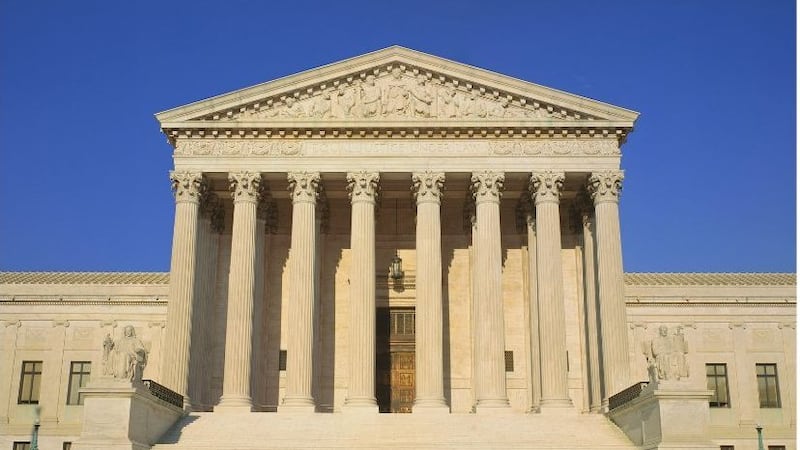The US Supreme Court has upheld key provisions of a significant law affecting the welfare of Native American children.
Muskogee Nation lawyer Jonodev Chaudhuri, says the 7-2 ruling upholds an inherent right of tribal nations to protect their own children.
"The decision also rejected arguments that Congress doesn't have the requisite constitutional authority to pass the act, which has positive implications for tribes outside of the child welfare context," Chaudhuri told teaomaori.news
The Indian Child Welfare Act of 1978 is a United States federal law that governs jurisdiction over the removal of American Indian children from their families in custody, foster care and adoption cases.
It was introduced because of the disproportionately high rate of forced removal of Native children from their traditional homes and from Native American cultures.
Before enactment, as many as 35 per cent of all Native children were being removed, usually forcibly, mostly from intact Native American families with extended family networks, and placed in predominantly non-Native homes, which had no relation to Native American cultures. In some cases, the Bureau of Indian Affairs paid the states to remove Native children and to place them with non-Native families and religious groups.
Tribal nations' rights challenged
That was challenged recently in the case of Haaland v Brackeen, where a Navajo and Cherokee child was placed in the care of a non-Indian family in Texas after its mother was found using drugs. Under the provisions of the ICWA, the Navajo Nation stepped in and sought to place the child with a Navajo family but that failed and the Brackeens were allowed to adopt the child. The Brackeens later attempted to adopt the boy's sister in state court but the girl's extended family also sought to take in the girl. The Brackeens then filed suit in federal court to overturn the ICWA on the grounds of racial discrimination.
Canadian indigenous broadcaster APTN News, reported the opinion, delivered by Justice Amy Coney Barrett, which ruled the court "declines to disturb the Fifth Circuit's conclusion that ICWA is consistent with" Congress's authority under the Constitution in Article I.
“The United States, joined by several Indian tribes, defends the law,” read the opinion. “But the bottom line is that we reject all of the petitioners’ challenges to the statute, some on the merits and others for lack of standing.” Challengers had argued ICWA was against “federal authority, infringes state sovereignty, and discriminates on the basis of race.”
'Enduring place' in constitution
Justice Neal Gorsuch, a judge with the most extensive federal Indian law knowledge and experience of all the justices, wrote in support: “Often, Native American tribes have come to this court seeking justice only to leave with bowed heads and empty hands. But that is not because this court has no justice to offer them. Our constitution reserves for the Ttribes a place—an enduring place—in the structure of American life. It promises them sovereignty for as long as they wish to keep it. And it secures that promise by divesting states of authority over Indian affairs and by giving the federal government certain significant (but limited and enumerated) powers aimed at building a lasting peace.
“In adopting the Indian Child Welfare Act, Congress exercised that lawful authority to secure the right of Indian parents to raise their families as they please; the right of Indian children to grow in their culture; and the right of Indian communities to resist fading into the twilight of history. All of that is in keeping with the constitution’s original design.”
President Joe Biden also weighed in shortly after the ruling was released. He said ICWA is a vital law he is proud to support and he stands with tribes.
"The ruling keeps in place a vital law that protects tribal sovereignty and native children," Biden said in a statement.
'Never again'
“Our nation’s painful history looms large over today’s decision. In the not-so-distant past, native children were stolen from the arms of the people who loved them. They were sent to boarding schools or to be raised by non-Indian families—all with the aim of erasing who they are as native people and tribal citizens. These were acts of unspeakable cruelty that affected generations of native children and threatened the very survival of tribal nations. The Indian Child Welfare Act was our nation’s promise: never again.”
Interior Secretary Deb Haaland, (Laguna Pueblo), called the decision “a welcome affirmation across Indian country of what presidents and congressional majorities on both sides of the aisle have recognised for the past four decades.”
“For nearly two centuries, federal policies promoted the forced removal of Indian children from their families and communities through boarding schools, foster care, and adoption. Those policies were a targeted attack on the existence of tribes, and they inflicted trauma on children, families and communities that people continue to feel today.”


